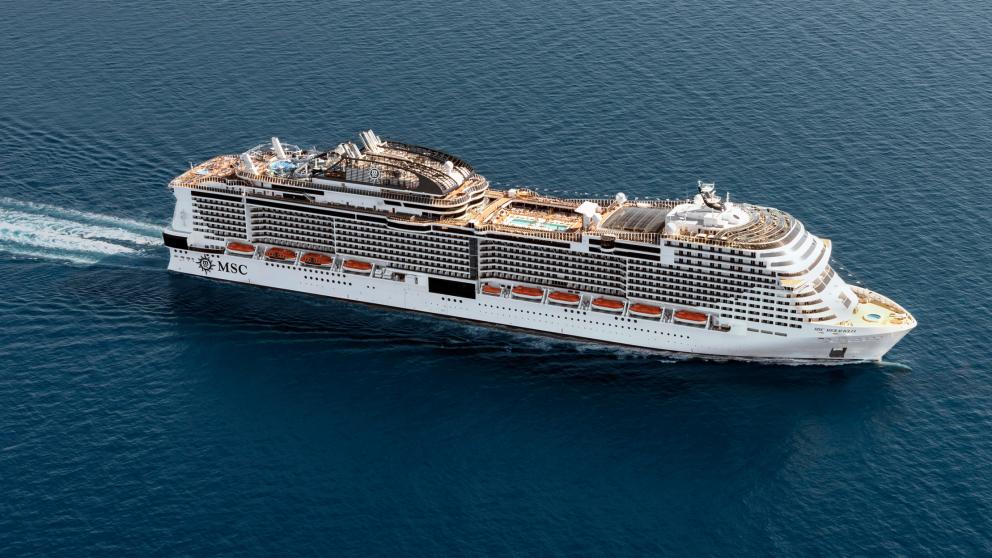Hydrogen and wind for the vessels of the future – significant EU funding for the University of Vaasa for low-carbon shipping research

The International Maritime Organization (IMO) has set a goal of halving greenhouse gas emissions from shipping by 2050. The CHEK project aims to reduce shipping emissions by bringing low-carbon energy forms and various technologies such as hydrogen, wind power, electric batteries, heat recovery, air lubrication and new anti-fouling technology to vessels, as well as developing the way vessels are designed and operated.
The results will be tested on two vessels, the Cargill bulk carrier, which will use wind energy by utilising a sail, and an MSC Cruises passenger ship, which will be equipped with a hydrogen-powered ship engine to be designed in the project. The use and symbiosis of new innovative technologies can reduce 99% of greenhouse gas emissions, achieve energy savings of up to 50% and reduce black carbon emissions by more than 95%.
– No current or emerging "silver bullet" technology alone will be able to reduce CO2 emissions from maritime transport in accordance with the IMO's ambitious 2050 goals. The shipping of the future must combine emerging technologies into a systemically symbiotic entity, says CHEK project coordinator, Doctor Suvi Karirinne, who heads VEBIC, University of Vaasa's energy and sustainability research platform.
Novel technologies will not just be stacked onto vessels, but the project will also develop the Future-Proof Vessel (FPV) Design Platform for the design of future low-carbon and energy-efficient ships. This new type of platform will provide the means to combine new technologies as favourably as possible so that they work in symbiosis with each other. At the same time, the design platform will also consider the different uses of vessels.
With the new vessel design method, the results of the two test vessels in the project can also be applied to other vessel types such as tankers, container ships, general cargo ships and ferries. The project will also undertake to prepare future scenarios and an analysis of factors affecting the development potential of low-carbon shipping, such as current infrastructure.
Innovative solutions through a diverse consortium
The multidisciplinary consortium of the three-year CHEK project, which starts next spring, will provide an opportunity to develop and research highly innovative solutions that improve the energy efficiency of ships and reduce CO2 emissions. The consortium includes two universities as well as shipping companies, a classification society, ship design, energy technology and other smaller technology companies.
– Researchers in energy technology at the University of Vaasa will participate in the development of the hydrogen-powered ship engine and its fuel system. The intention is to build a full-scale hydrogen engine prototype, which will be tested in Vaasa. The fuel system to be developed will also enable the use of hydrogen in VEBIC's combustion engine laboratory. The system will be designed so that it also serves fuel cells if necessary and allows the use of other gases, says Seppo Niemi, Professor of Energy Technology at the University of Vaasa.
The university will also be involved in the design of the low-carbon, energy-efficient vessel entity of the future, as well as in the development of design methods and energy production technologies.
– CHEK represents another significant step on Wärtsilä’s journey to help decarbonise the marine industry. In this collaborative project, we will develop and test some of the technologies, which are key to achieve this goal. Inside Wärtsilä we will focus on hydrogen engine and gate rudder development, power system optimization and system integration with supporting technologies like wind power, hull air lubrication and a novel rudder system that combines enhanced manoeuvrability and high efficiency, says Jonas Åkerman, Director of Research and Technology Development, Wärtsilä Marine.
According to Åkerman, it is extremely advantageous for Wärtsilä to work together with the CHEK partners.
– We will certainly benefit from the diverse knowledge and skills that the various partners will bring to the project. We especially want to mention the central role of the University of Vaasa who, as one of the initial partners in our Smart Partner Campus, has taken on a coordinating role in the project to ensure it will proceed smoothly.
"Hydrogen is an alternative fuel of the future"
Suvi Karirinne, the project coordinator, says that the CHEK project will increase the impact of energy transition research at the University of Vaasa and its VEBIC research platform by focusing on research on alternative fuels and their engine use.
– Hydrogen is an alternative fuel of the future. This will allow us to study and promote the reduction of greenhouse gases in heavy transport and shipping and to combat climate change, Karirinne says.
This large EU project will also develop VEBIC's expertise in leading and managing large research projects. The hydrogen engine-related infrastructure will complement VEBIC’s existing research infrastructure with laboratories for fuels, combustion engines and smart grids. In the future, VEBIC's combustion engine laboratory will have the opportunity to study gaseous fuels more extensively, as the infrastructure for the use and research of biogas will be completed in the spring. The completion of the research infrastructure for gaseous fuels will also enable the development of research on the integration of different energy vectors and networks at the University of Vaasa.
Further information
CHEK Project coordinator, Director Suvi Karirinne, VEBIC, University of Vaasa, tel. +358 29 449 8284, suvi.karirinne@uwasa.fi
Professor of Energy Technology Seppo Niemi, University of Vaasa, tel. +358 29 449 8304, seppo.niemi@uwasa.fi